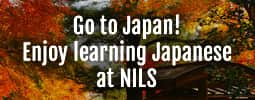 Best Things to Do for the Lunar New Year in Chinatown, NYC
February 12, 2015
Best Things to Do for the Lunar New Year in Chinatown, NYC
February 12, 2015
In case you weren’t aware, the Chinese Lunar New Year is coming up soon on February 19th. If you’ve never experienced a Chinese New Year celebration, there’s no time like the present. Head over to Chinatown and get ready for a great cultural experience you won’t soon forget.
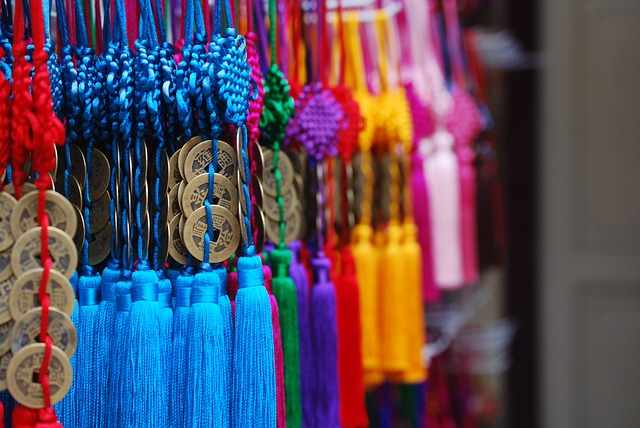
What We Cover
- The Lunar Festival Parade
- Sightseeing in Chinatown
- Chinatown Cuisine
- Shopping Chinatown’s Streets
- How to get to Chinatown from NYEA
A Little Bit about Chinatown, NYC
City areas often called, “Chinatown” can be found across the globe but the one located in New York City is the largest in the entire western hemisphere. It’s on the lower east side of Manhattan, bounded roughly by Kenmore and Delancey to the north, East and Worth Streets to the south, Allen Street on the east, and Broadway on the west.
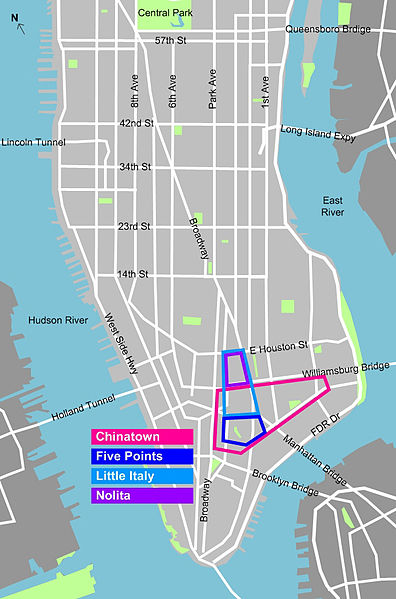
Chinatown started in the mid- to late 1800s as Chinese immigrants moved east from California after the Gold Rush dried up and began to congregate in the northeast where manufacturing jobs were beginning to pop up. Chinese hand laundries became popular all over New York in the 1880s and ’90s as the population grew, and there were approximately 7,000 Chinese living in the city by 1900. This growth happened in the face of the Chinese Exclusion Act (1882–1943), which tried to prohibit immigration of Chinese to America. The area was a largely self-sustaining community, with a variety of associations and societies springing up to protect Chinese interests in the developing neighborhood. With the lifting of the Exclusion Act in 1943 and immigration quotas relaxed in the ’60s, the population grew dramatically to support the variety of garment factories, Chinese restaurants, and other cottage industries that had risen up. The population today is somewhere around 100,000 and the Chinese “feel” of the neighborhood has not diminished in the least, despite the Chinese community’s growth in other parts of the city.
Chinese New Year Parade
The biggest part of the New Year celebration in Chinatown is the annual Chinese Lunar New Year Parade. Because 2015 is the Year of the Goat on the Chinese zodiac, the parade will feature this animal.
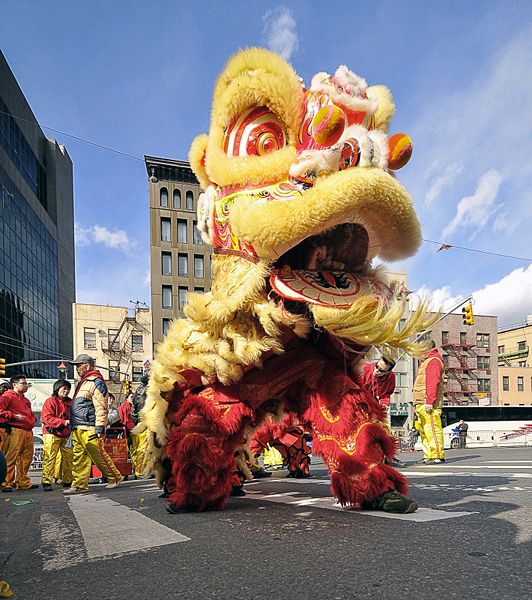
The actual New Year takes place on February 19 and there will be a Firecracker Ceremony at Sara D. Roosevelt Park starting at 11 a.m. followed by a cultural festival emphasizing traditional Chinese culture and cuisine.
The parade will happen on February 22 starting on Canal Street and Mott Street at 1 p.m., following a meandering route and ending up at Sara D. Roosevelt Park, followed by another cultural festival. Don’t miss the estimated 6,000 marchers, from dragon and lion dances to acrobats. It will be quite the spectacle.
3 Free Sightseeing Spots
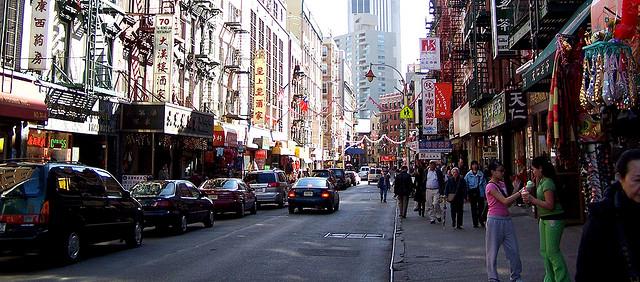
Once the parade is over, stick around Chinatown and take in the sights. Here are a few places to visit:
- Columbus Park: This is a great place to do some people watching, learn how to play mah-jongg, get your fortune told, or watch some folks practice tai chi.
- Mahayana Buddhist Temple: This temple houses a 16-foot-tall golden Buddha and has some spectacular ivory carvings displayed in the gift shop.
- Museum of Chinese in America: This museum covers the history of the Chinese immigrant community in America in great detail and you’re sure to learn a lot here. General admission is normally $10 but you can get in free the first Thursday of each month.
Mouthwatering Chinatown Cuisine
There are tons of great places to eat in Chinatown but here are a few notable spots:
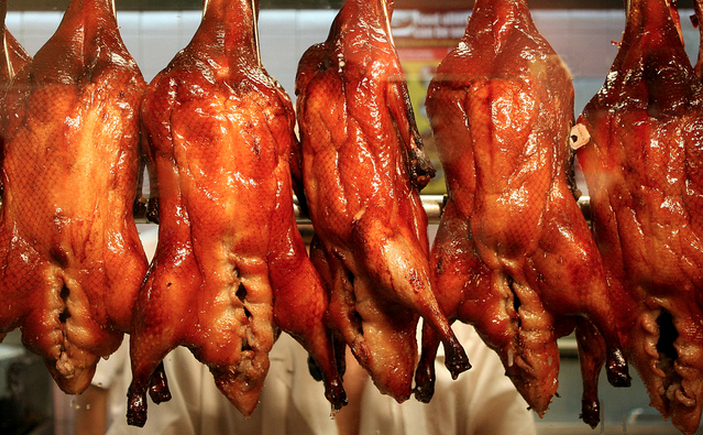
- Jing Fong: One of the city’s largest Cantonese restaurants, this is a great place to go with friends, and maybe meet a few new acquaintances at one of the big communal tables were diners are seated.
- Mei Li Wah Coffee Shop: If you want some Chinese food on a budget, hit up this local favorite for some cheap, yet quite tasty steamed buns. Disregard the name as there is plenty more than coffee served up at this cost-conscious eatery.
- Noh Wah Tea Parlor: This is one of the oldest dim sum restaurants in Chinatown, having been opened in 1920. It feels like a place out of time and you will love the experience of stepping back into a mid-modern Chinese restaurant that hasn’t lost its touch after all these years.
Shopping the Streets of Chinatown
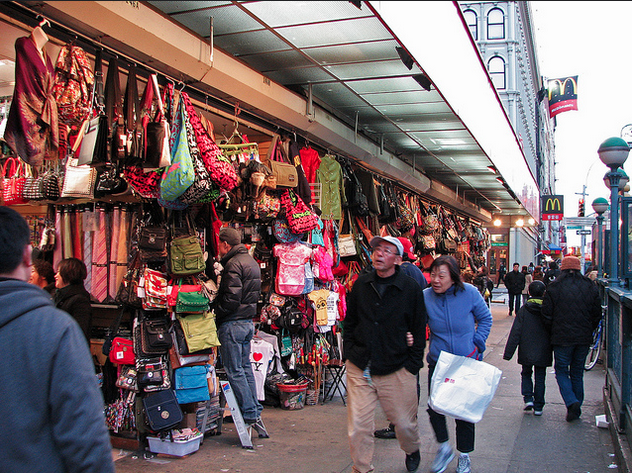
After a delicious meal of dim sum, it’s time to go for a walk. Chinatown is full of shops catering to all tastes and desires. Here are a couple of options:
- Project No. 8: This is actually two stores around the corner from each other, one for men and one for women. Owned by the design group “Various Projects,” the two stores carry a unique and well-curated selection of clothing from the eponymous owners as well as a variety of other international designers.
- Yunhong Chopsticks Shop: Claiming to be the first chopsticks boutique in the country (a claim we cannot confirm), you’ll find all manner of the traditional Chinese eating utensils here. They have every kind under the sun, whether for eating or display. You’ll certainly find something to your taste among their wares.
How to Get to Chinatown from NYEA
If you step out of NYEA, it’s about a mile walk to Chinatown. Head left down to Pearl Street and turn left at the intersection of Water Street. Continue on Water Street, which then becomes St. James Place. Turn left on Oliver Street (which turns into Worth Street) and you’ve arrived on the southern edge of Chinatown. Enjoy your visit!
Archive
- October 2023
- August 2023
- July 2023
- June 2023
- May 2023
- April 2023
- March 2023
- February 2023
- January 2023
- November 2022
- October 2022
- August 2019
- July 2019
- June 2019
- May 2019
- April 2019
- March 2019
- February 2019
- December 2018
- October 2018
- September 2018
- August 2018
- July 2018
- June 2018
- May 2018
- April 2018
- March 2018
- February 2018
- January 2018
- December 2017
- November 2017
- October 2017
- June 2017
- April 2017
- March 2017
- February 2017
- January 2017
- December 2016
- November 2016
- October 2016
- September 2016
- August 2016
- July 2016
- June 2016
- May 2016
- April 2016
- March 2016
- February 2016
- January 2016
- December 2015
- November 2015
- September 2015
- August 2015
- July 2015
- June 2015
- May 2015
- April 2015
- February 2015
- January 2015
- November 2014
- October 2014
- September 2014
- August 2014
- July 2014
- June 2014
- May 2014
- April 2014
- March 2014
- February 2014
- January 2014
- December 2013
- November 2013
- October 2013
- September 2013
- August 2013
- July 2013
- June 2013
- May 2013
- April 2013
- March 2013
- February 2013
- January 2013
- December 2012
- November 2012
- October 2012
- September 2012
- August 2012
- July 2012
